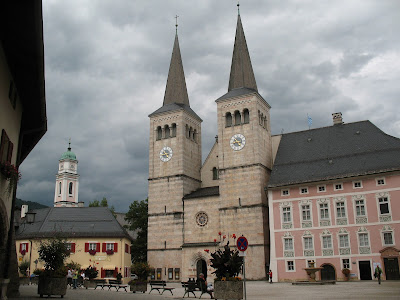While preparing my new website (coming soon), I stumbled upon this political column that I had written for one of my Journalism classes last semester and wanted to share it with you. It was written in November, so there are a few references to Christmas and other past dates. However, it's still up to date in most aspects and will probably be so until the general election in May.
 |
| Courtesy of Wikimedia |
Freedom of movement has been a
basic principle of European co-operation since the Treaty of Rome in 1957,
which founded the European Economic Community - the forerunner of the European
Union. But now this principle is under
threat as Britain calls for restrictions on freedom of movement inside the EU.
One of the biggest and most verbal opponents is Germany.
This weekend, as thousands of white
balloons were released to symbolise the fall of the Berlin wall on the 9th
November 1989, it becomes apparent why Germany won’t back down on this issue.
The wall divided Berlin for 37 years, separating families, friends and
neighbours. Its fall became a powerful symbol of the end of the Cold War, and
is still deeply embedded in the memory of most Germans.
 | |
| Courtesy of Wikimedia |
As long as there are still parts of
the Berlin wall standing, Germany won’t budge. For Germany, as for many other
EU countries, freedom of movement is a sacrosanct right. According to Der
Spiegel magazine, Angela Merkel recently told David Camerion that the British
insistence on restricting freedom of movement would be a “point of no return”
and could sharply increase the risk of Britain leaving the EU.
 | |
| Courtesy of Wikimedia |
However, the UK might find common
ground with the EU’s biggest country on the issue of curbing benefits abuse and
poverty-driven migration. The current debate about possibilities of limiting
benefits abuse by European migrants has already happened in Germany.
Just like David Cameron is
currently courting the right-leaning Tories and UKIP sympathisers by promising
to limit EU migration, Angela Merkel’s Christian Social Union promised
get-tough measures as regional elections were held in August this year.
"Who lies, flies" was the maxim for the proposed law designed to show
Europe that Germany is no longer a soft touch for "benefits
tourists."
Under the new law, those EU
citizens who arrive in Germany will have a six month period to try to find work
before being asked to leave "if they have no reasonable prospects of
finding work." Individuals will not be entitled to benefits if they have
not paid into the system. The proposal will go before both houses of parliament
before the end of the year and is expected to be ratified into law.
However, there is doubt in both
countries about how many EU migrants actually abuse the system. In Germany,
labour minister Andrea Nahles told Der Spiegel: „We cannot quantify the amount
of abuse correctly. We don’t know exactly what these numbers look like”.
Numbers about EU migration show a
different picture than what some conservative politicians like to paint: About
as many Britons live in the EU as EU citizens in Britain, so any limitation to
freedom of movement would affect them as well. In total, more than 14m EU
citizens are resident in another member state, that’s 2.8 percent of the total
EU population.
Lord Oakeshott, the Liberal Democrat peer who uncovered the figure in a
parliamentary question, said the high numbers of Britons abroad proved that
freedom of movement was a “genuine two-way street”. “As many Britons work or
retire across the Channel or the Irish Sea as other Europeans come here,” the
Lib Dem peer told the Financial Times.
With Christmas fast approaching,
David Cameron is unlikely to be given his biggest wish of reducing EU
immigration, but instead he might get the next best thing, a European
willingness to talk about poverty-driven migration and changes of rules about
benefits – endorsed by Germany.




























